- Best Cultivator Attachments Guide - December 23, 2021
- How to Find the Best Leaf Blower Attachment - December 23, 2021
- Best 21 Inch Lawn Mower Blade Options - December 18, 2021
If you’ve looked at your lawn and decided it’s about time to reseed with seeds that have been sitting in your shed for years, you might want to rethink that strategy, as grass seed can go bad even while in the bag.
Today I’ll be covering why and how grass seed goes bad, how to prevent it from going bad, how to check the quality of your seed and alternative uses for bad seed.
Why Does Grass Seed Go Bad
Grass seed can decrease in quality because of a few reasons. You should absolutely use your grass seed within a year. With every year that passes, the seed will slowly decline by around 10%.
Two of the main reasons why grass seed goes bad are the condition it’s stored in and rodents.
The Condition It’s Stored
If you’re storing your grass seed in poor conditions, expect the seed to go bad. Bad conditions would be an area with a lot of heat exposure and humidity. So don’t keep it in your garage or garden shed if it’s exposed to sunlight or heat.
Rodents
Pests such as rats, squirrels, and other rodents will burst the bag and eat the seed inside. However, they will leave the husks, which could make you think the seed was still there.
If you’re looking to prevent these issues, continue reading to guide the proper conditions to store it in.
How To Prevent Grass Seed From Going Bad
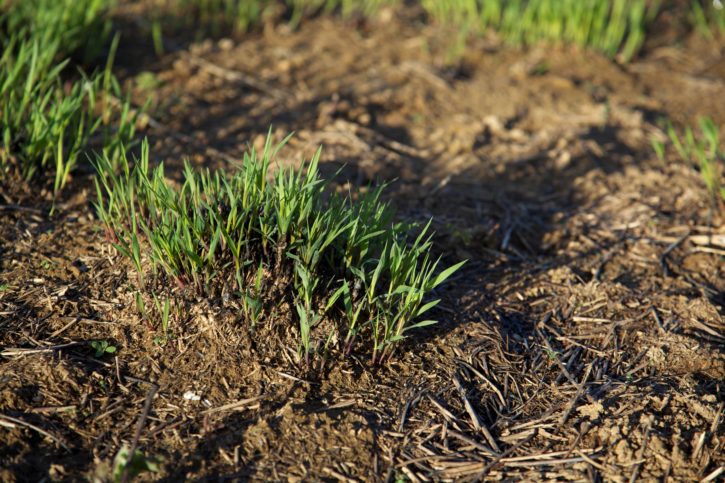
In the right conditions, grass can survive up to five years (three if the bag is unsealed). They still wouldn’t achieve the same results as a fresh user, but your grass would still look perfectly fine.
The Correct Conditions
The best-recommended conditions for grass seed are somewhere dry and cool where no direct sunlight can reach the seed. If your bag isn’t open, be sure that it has some ventilation to allow air. Preferably the storage place will be air-conditioned, and the heat in the storage place should be between 40° and 50° Fahrenheit.
Preventing Pests
Preventing pests is simple but more challenging to accomplish in comparison to the other issues. The clear answer is to set up traps where the seed is kept to kill any potential pests.
However, you could also keep the seed in a more difficult place to reach. Somewhere higher than the ground level, such as a shelf. This still won’t completely protect it, but it’s safer than keeping it on the floor.
If you’ve kept your seed in the right condition, but you’re still unsure of the quality, then there is an easy test you can follow below to check the condition.
How To Check Condition Of Grass Seed
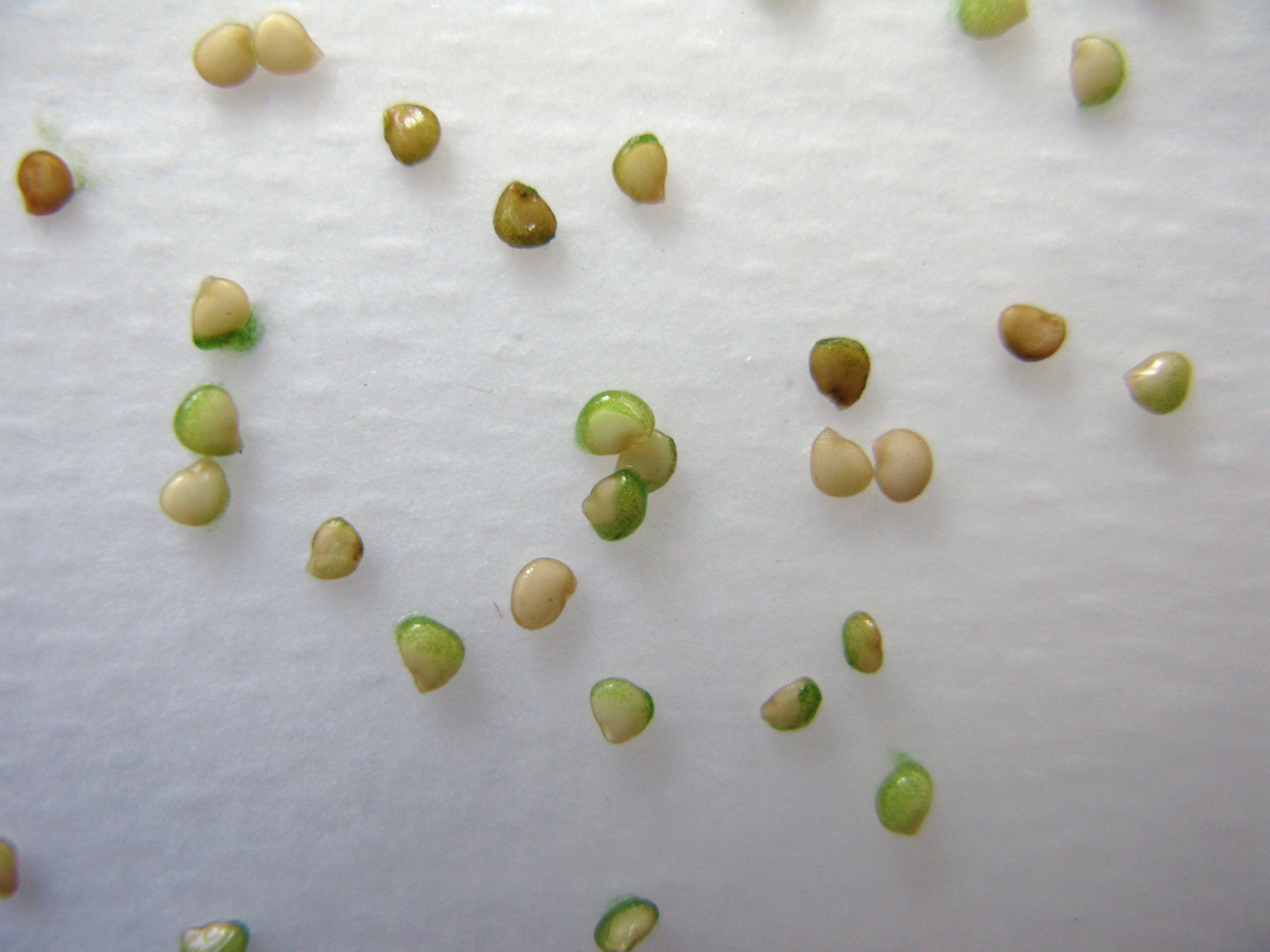
If you’re looking to use your old grass seed, but you’re unsure of whether it’s ok to use, then I recommend you follow the steps below to check the quality:
- First, dampen a paper towel using water.
- Place 5 to 7 seeds on the towel and place them onto a radiator or something that will provide moderate amounts of heat.
- If the seeds sprout within 10 to 14 days, then you’re okay to use them. However, if they don’t, instead of throwing that seed away, I’ve given you a couple of ideas for alternate uses below.
Can I Put Bad Seed To Use In Another Way?
Yes, unused grass seeds can be used as bird seeds and as fertilizer.
As said earlier, it’s best not to throw out seeds immediately. Of course, rodents are fond of it, but it’s also an acceptable food for birds.
It could still help with the growth of your grass if you put it to use as a fertilizer too. Both of these options are infinitely better than just throwing them away.
Recommended Products
Scotts Perennial Ryegrass
This Perennial Ryegrass has been reported as one of the longest-lasting grass seeds. Scotts is also a very trustworthy brand, and the product itself should work perfectly on your lawn.
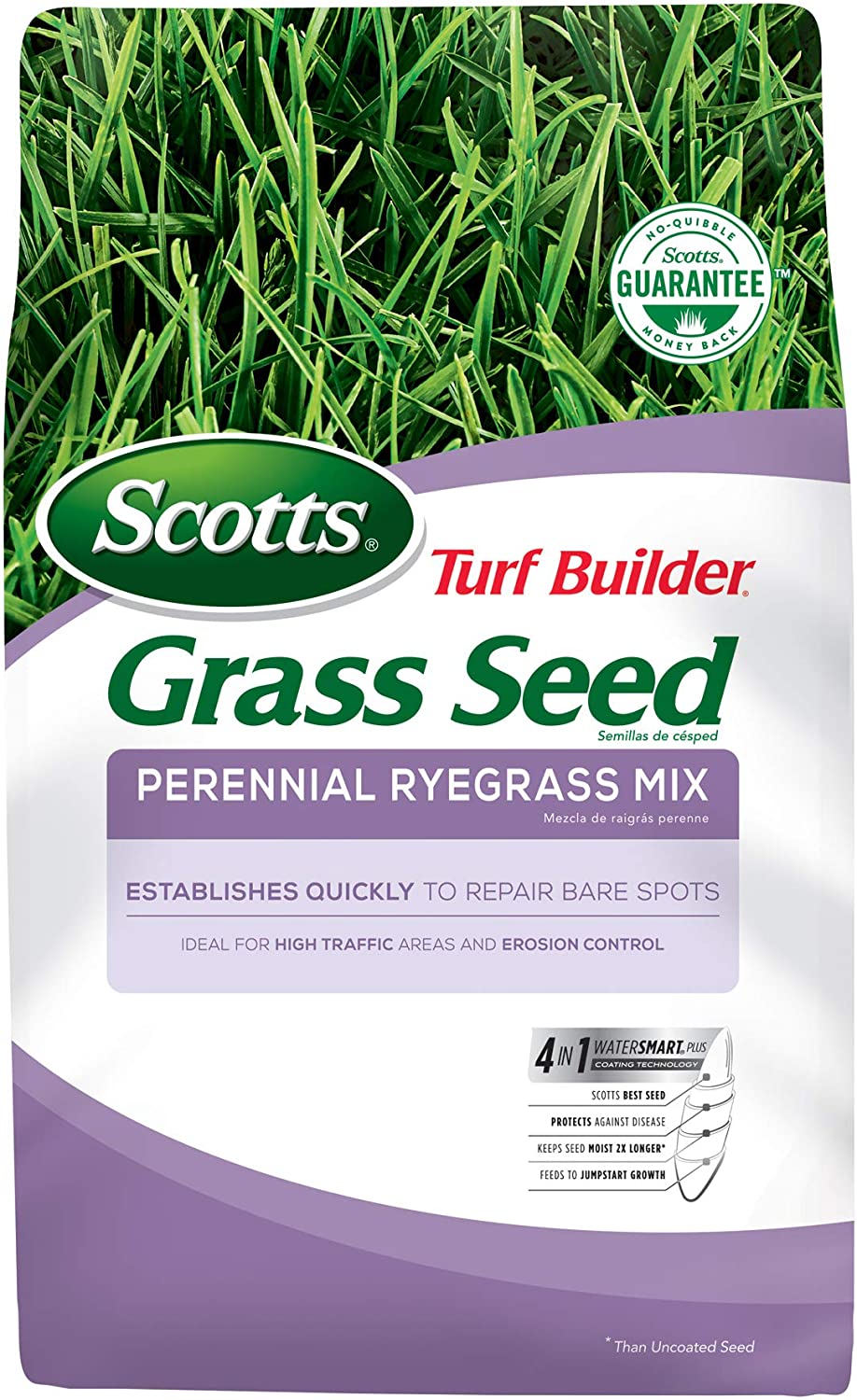
Pros:
- Perennial Ryegrass is seen as one of the best grass types for lawns with heavy foot traffic.
- It’s excellent at avoiding diseases.
- Ryegrass is known to have a quick germination period, sometimes as few as three days.
Cons:
- Perennial Ryegrass isn’t durable against colder temperatures.
- It can also suffer damage from greater heat.
- It’s higher maintenance in comparison to other grass types.
Scotts Centipede Grass Seed
Centipede grass seed has an excellent shelf life for grass seeds. If stored in satisfactory conditions, they can last up to 3 years.
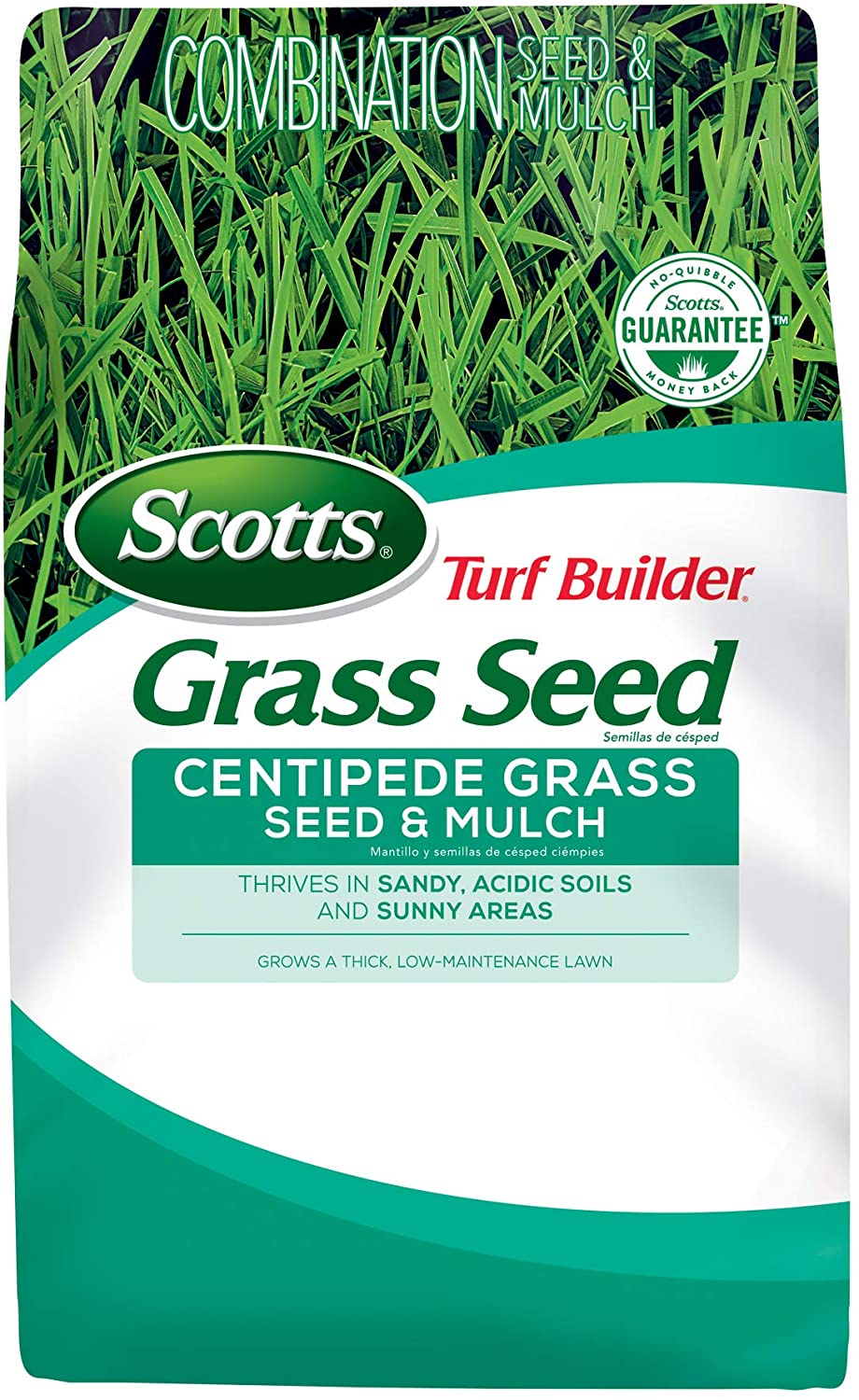
Pros:
- Centipede grass is low maintenance which differs from other grass seeds like the Ryegrass mentioned above.
- It can survive in warmer climates.
- It is also resistant to colder temperatures.
- Can grow well in sandy soils.
Cons:
- Centipede grass is infamous for its long germination period, sometimes taking up to 28 days.
- Can’t handle heavy foot traffic
- It can’t be kept in the shade for too long, needs consistent sunlight for healthy growth.
- It won’t repair itself quickly after wear and tear.
Scotts Bermuda Grass Seed
Bermuda grass seed has the same shelf life as Centipede grass seed and the average shelf life for Scott’s grass seeds. This lifespan is far superior in comparison to other brands.
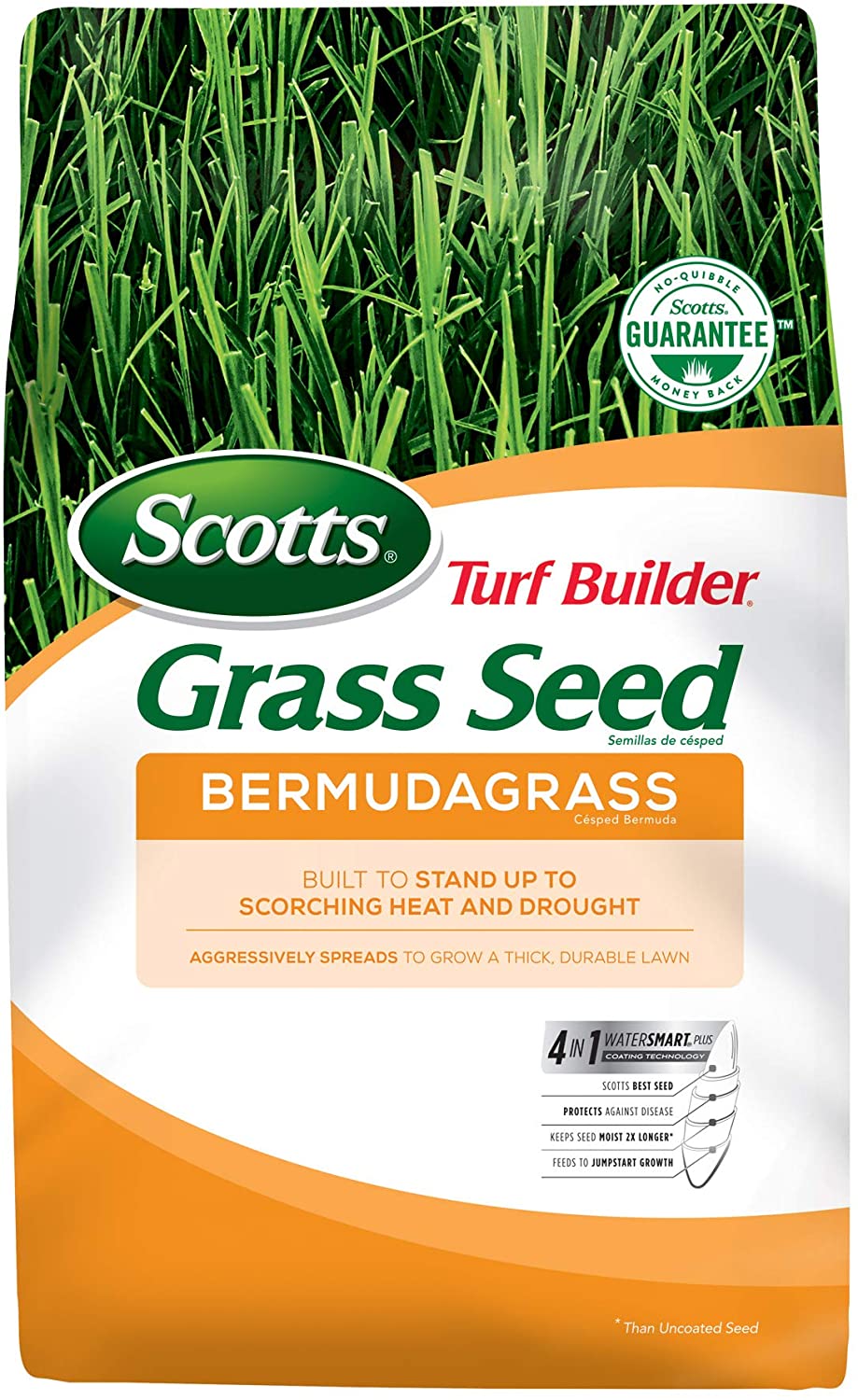
Pros:
- Bermuda grass can be grown in different types of soil.
- Excellent tolerance to heavy foot traffic.
- Longer life span when compared to different warm-season grass types.
- It can quickly repair itself after taking damage.
Cons:
- Higher Maintenace.
- It needs more exposure to direct sunlight.
- Weeds can root easily.
- It has a quick growth rate that can negatively affect other parts of your lawn, such as flower beds.
How to Store These Products
The storage conditions for the seeds below should be as follows:
- Somewhere dry
- No direct sunlight
- Needs air circulation
- The temperature should be between 40° and 50° Fahrenheit
- Bags should be kept off the floor to avoid pests
If you keep your grass in these storage conditions, you should get the best shelf life possible.
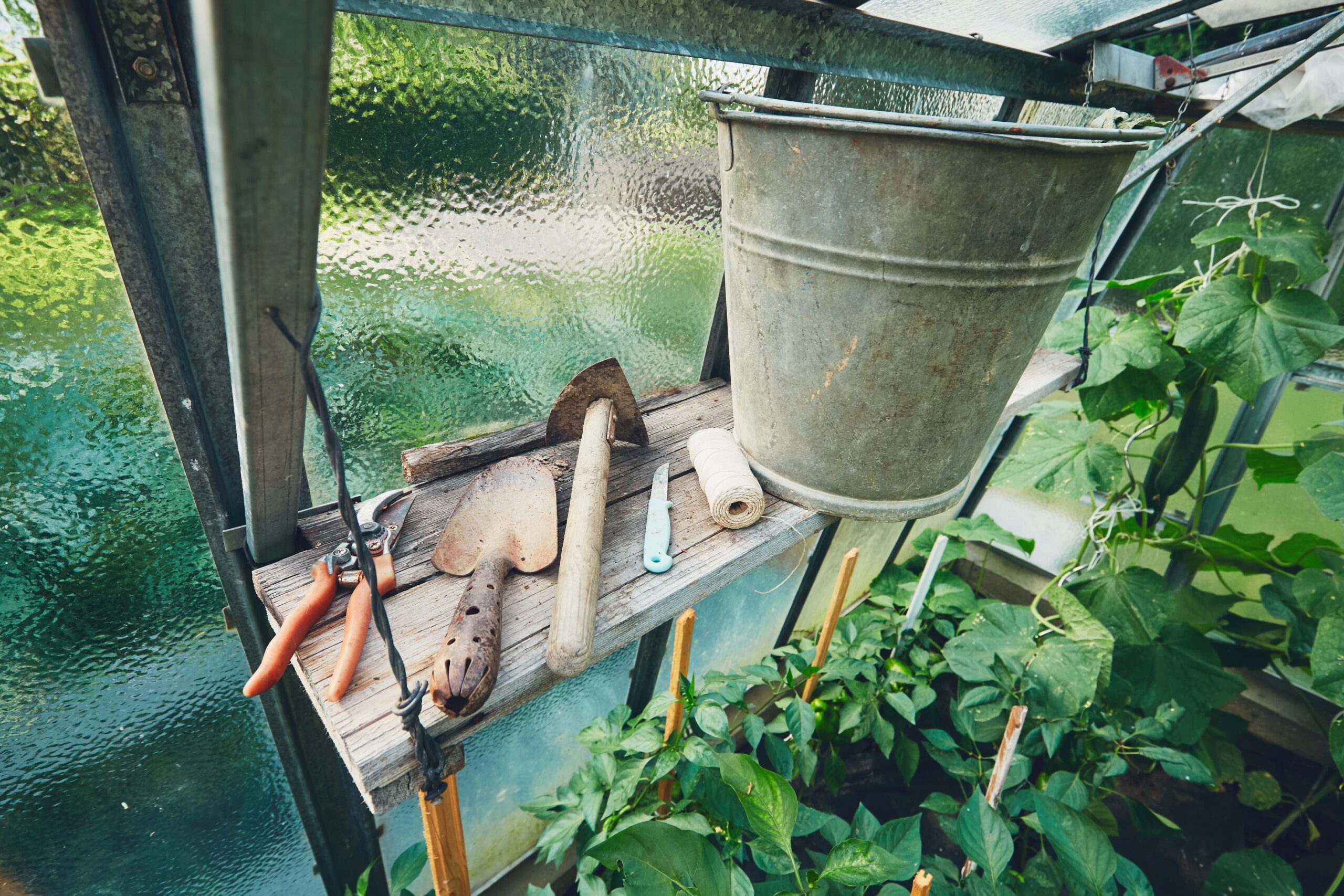
Frequently Asked Questions
Question: Should You Follow the Grass Seed Expiry Date?
Answer: The expiry date on your grass seed might not be completely accurate, especially if you’ve kept it in suitable conditions. It’s difficult to predict an exact expiry date as the conditions it’s kept in. It might seem odd to go against the expiry date, but I recommend following the steps above to check the state of the seed.
Question: Should You Freeze Your Grass Seed?
Answer: There have been reports that freezing your grass seed will keep it healthy for longer periods of time. However, I recommend against this process as keeping it in warm conditions is bad, but you don’t want to fight it by going to the opposite extreme. In addition, freezing grass seed could potentially kill it.
Question: Can Bad Seed Still Grow?
Answer: It can potentially still grow, but it won’t achieve the same results you’d get from healthy grass seed. Even seed that has decreased in quality will achieve lesser results. So if you’re looking for that perfect lawn, it’s best to use a brand new seed.
Question: Does It Matter If The Bag Is Sealed?
Answer: Yes, it does matter a lot. In fact, if a bag is unsealed and in the right conditions, it has an opportunity to survive up to five years later. An unsealed bag can only last around 3 years, the time mentioned above.
Question: I Tested My Seed, and It Still Didn’t Grow. Why?
Answer: Even if your grass seed hasn’t gone bad, several issues could arise—all of which aren’t the seeds’ fault.
- The weather conditions might not be correct. If you’re growing a seed, be sure that your soil temperature will stay consistent.
- You haven’t adequately prepared your yard for new grass.
- If your grass isn’t getting enough direct sunlight, it will negatively affect germination.
- You might have over-watered the grass or given it too much fertilizer.
- There might be an issue with the grass growing in the wrong grass hardiness zone, or the pH levels of the soil could be off.
These are just a few of the biggest issues you could be facing currently.
Conclusion
Grass seeds can very easily turn bad if they aren’t kept in the right conditions. Bad grass seed won’t produce the same results if you end up planting it by mistake.
I recommend against following the expiry date, sometimes these dates aren’t accurate, and the seed could still be planted. But if you do end up with a bad seed, don’t throw it away; instead, put it to better use as birdseed or fertilizer.
If you’re looking for more great articles, then we have plenty to offer. Such as this article covers the differences between centipede grass vs. Bermuda grass. Or maybe you’re more interested in laying some mulch, in which case we have this article on the best mulches for your lawn.

